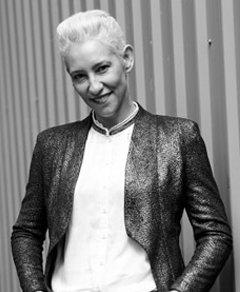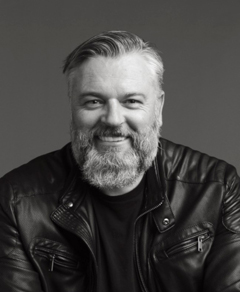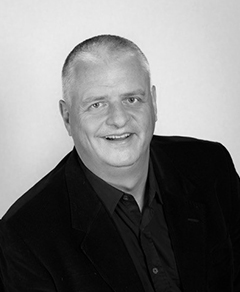Three years on, the consulting sector's raid on agencies is "not all it's cracked up to be"

Revolving doors: Former KPMG and Deloitte execs say more exits are coming at the consulting firms but is it just a blip in the turf wars?
About three years ago media and creative agency bosses were getting nervous - the big consulting firms were hiring and acquiring agency talent and businesses to crack marketing and communications. But the wave of agency defections to consulting firms has reversed this year. Big names are leaving and former Deloitte and KPMG advisors, Nathan Birch and Nicola Mansfield, now running Omnicom's Interbrand unit, say more consulting exits are coming. What's going on?
"We talk about boomerang consultants. It's definitely a revolving door. People are attracted by the greener grass but the nirvana of professional services isn't all it's cracked up to be."
You need to know this:
- Accenture Interactive's managing director Michael Buckley has suddenly gone. Deloitte's Andy Bateman is off to the Japanese-owned Hakuhodo creative group, Sid Lee, in LA; PwC's Ben Shepherd is heading to CHE Proximity; former Deloitte exec Davy Rennie is now running DDB Tribal; WPP hired Sunita Gloster from PwC's CMO Advisory and also lost Nicky Bryson to TBWA. Deloitte Digital's Nicola Mansfield has just started at Omnicom's Interbrand. Former Telstra CMO Mark Buckman is back at Accenture Interactive. KPMG's rainmaker Paul Howes has moved up the firm's ranks from his remit establishing the Customer, Brand and Marketing practice with Amanda Hicks taking over after it acquired her research and insights firm Acuity in 2007
- After their tenures at KPMG and Deloitte Digital, Interbrand's CEO Nathan Birch and managing director Nicola Mansfield say more exits from the consulting firms are coming
- The Australian Financial Review's professional services editor Edmund Tadros says the consulting firms are under pressure for growth and margins and an incoming "operational split" by regulators between audit and advisory practices
- The big firms are facing a culture clash, at least with their agency and talent acquisitions in the creative sphere, because of a conservative "incremental innovation" approach in marketing and customer experience advisory
- The speculation bubble continues about a global PwC-WPP alliance
- Jon Bradshaw is unconvinced CMOs care about the agency v consulting turf wars and thinks the consulting firms are strong outside of their recent creative endeavours
- This is Part One
We'll say it again. The best 20 minutes you can spend this week if you're in marketing agencies or media is to listen to this discussion about the emerging challenges in the consulting sector for hiring and acquiring agency talent and the ensuing "culture friction". It's an informative take for those wondering what might be happening in those mighty professional services firms advancing their claims on the CMO and communications remit. Listen to the Mi3 Audio edition here. Or even here.
"In the next year or two the dust will settle and it will become very clear what the communications businesses are good at doing and what professional services are good at doing."

Interbrand's Nicole Mansfield says "iconic creativity is very, very difficult to achieve" in consulting firms
The creative problem
In 2015, Deloitte acquired the customer experience and brand consultancy MashUp, which saw Nicola Mansfield move across as Deloitte's director of experience design, spatial and brand. Five weeks ago she started as Interbrand's Australian managing director after being wooed by Interbrand CEO and former KPMG and Deloitte Digital strategy lead, Nathan Birch. Interbrand is part of Omnicom's DDB group and Mansfield, though respectful, was clearly frustrated during her time at Deloitte.
Prior to MashUp she was Jurlique's global head of strategy and creative. Deloitte Digital in Australia was a pioneer for the global firm 15 years ago when it acquired a web development company following a client request. Mansfield clearly sits on the creative side of the ledger in the consulting and agency worlds and flags some warning signals about how the creative endeavour travels inside professional services.
"Creatives at heart are makers. When they're sitting in a pure strategy offering and not able to implement some of those strategies and realise their vision, that becomes very frustrating," she says. "I will say those people who come out of professional services have amazing listening skills, consulting skills and will be better creators as a result."
But Mansfield is not backward in her view that Deloitte worked acquisitions like MashUp well for market perceptions.
"We were probably one of the more outlier acquisitions," she says. "There was enormous cachet because it led to all sorts of differentiation powers for the Deloitte brand. In many instances these services are reasonably homogenised, so the value of brand, ironically, is a big part of why these acquisitions might happen. But what we went in to do is slightly different to what we ended up doing."
That, she says, is a telling point.
"How many of these acquisitions are still doing what they did prior to being purchased? It says a lot about the professional services model itself. At MashUp, prior to the acquisition, we were obsessed by the customer. Once we were in Deloitte we found ourselves gravitating more to the needs of the employee experience. Where we were often working in the retail space, we found ourselves working much more in the financial services industry. Our product morphed to adapt to the fertile ground that we found in front of us within professional services. It was a different kind of fertile ground than what we were originally doing at MashUp. We didn't expect that."
So what's different at Interbrand? Mansfield talks about "incremental innovation" at Deloitte versus "iconic market manoeuvers" where she is today. "Clients coming to us at Interbrand want significant shifts. If you want more incremental moves, then perhaps go to one of the big four. We're very much thinking about a combination of business strategy and brand strategy. Absolutely our sweet spot is how iconic moves will add value to business strategy."
"The professional services firms are the place where great creators go to die. Your ability becomes diluted by the model."

Nathan Birch says the margins for consultancies are still martech implementation programs, not strategy work
Strategy as a loss leader
Nathan Birch cut his teeth at Orange and GE in the UK before joining KPMG in Australia, followed by Deloitte and a brief stint as Nine's director of innovation and transformation before joining Interband two years ago as CEO. Birch says he’s the "strategy guy" not a creative. He also figures he's not popular with KPMG and Deloitte because of his outspoken views. You get the idea here: "The enduring mantra I've taken from a couple of the consulting firms is 'sell it and solve it' and 'land and expand'. I think that would resonate with most people within the big four at the moment."
Birch still argues strategy is the route into an upsell for the professional services firms.
"Essentially strategy work is the thin end of the spear. You can sell it at a loss because typically in a digital environment, the strategy work, the positioning work, would be a precursor to the user experience and the customer experience build - which could be a multiple of 10 times more than the strategy work. And then ultimately what they are trying to do is sell you a big martech platform. It could be an Adobe implementation or a Salesforce implementation, which again, would be several times the multiple of the strategy piece. That's really where they are playing at the moment."
Birch is equally critical of the way in which consulting firms underplay the value of brands as a strategic asset.
"I've gone through the digital transformation piece and drank from the Kool-Aid," he says. "As a strategic asset, I now realise brand is the only asset which organisations have the most control over, because it has the ability to differentiate or enable a business to be distinctive in a very crowded market. There are not brand experts in consulting. Marketing has been viewed as a cost centre, the fluffy stuff. It's not traditionally been taught in three decades of MBA schools. But now we see that it is."
Birch also argues some of the consulting firms have perhaps overreached in their acquisition blueprints. "They acquired on the very edge of creative services. It's interesting and very exciting to go into that space, but they have almost overstepped. Martech is a more natural home for them to buy into."
"I'm not sure Nathan is entirely right about the brand thing. I certainly know very capable brand strategists working inside the big consulting groups who have a background that looks very similar to him."

Bradshaw's usual caveat: just because you can measure it, doesn't make it the right thing to do all the time.
Do CMOs care?
Jon Bradshaw is unconvinced the consulting firms are headed for deeply troubled waters or that CMO's are terribly enthralled with the current turf wars. But he admits there might be some problems around the consulting firms’ experimentation at the far end of creative services and communications.
He thinks money – or lack of it – may be as much of a challenge as cultural discomfort.
"I do wonder how the lower margin of communications is going to fit into the higher margin environment of an audit and consulting practice. Certainly this notion of culture and whether the types of creative people that traditionally would be art directors or copywriters that build iconic creative advertising can find a comfortable home within the big four consulting and accounting groups is interesting," he says. "It's clear not all of them can. Therefore if the big four want to make a play in the communications space, they are going to have to do some interesting thinking about culture and how it's managed. It does start to ask questions about whether that experiment will play out. We are mainly seeing Accenture [attempt to address] that. The big traditional accountants less so."
Outside of the creative remit, though, Bradshaw thinks professional services firms will remain strong.
"There's a whole bunch of things that CMOs need that have a much tighter fit with the traditional consulting and analytical model," he says. "Everything from traditional digital transformation through to hard-core marketing strategy; what segments and markets should someone play in; what the user experience and customer experience looks like. There is the design part of that job where you need a creative person - but a lot of that work is more rigorous analytical type work. And it is only when we get to design and communications where we start to require these particular talents that we're certainly hearing a large number of people are struggling to fit."
Equally, Bradshaw begs to differ with Nathan Birch on the consulting firms underplaying the role of brands as a corporate asset.
"He may well be right about Deloitte but I certainly know people who work for both KPMG and PwC that do the type of work Nathan is very, very good at."
There is also, of course, the consultants looking at parts of the media strategy and buying business. Why is PwC's Ben Shepherd leaving the resource-abundant firm to run media for a much smaller agency group? Next time.
"The consulting firms have some bigger issues on the horizon. The UK competition regulator has said there should be an operational split between the auditing and consulting arms. That is coming to Australia."

Where's the growth?
Edmund Tadros has a better view than most on the big picture for professional services. He says the big firms are writing upwards of $1.5 billion each in revenues and are coming off five to 10 years of double digit annual growth. That, he suggests, is a problem.
"They're reaching a stage where there is not much more growth from their traditional clients," he says. "Audit is not growing as a fast as consulting. There's a saturated market, so they are going into other service lines. They are all going into areas where they think their model works; PwC has a big law practice; another one is CMO."
Tadros says the big firms are also pushing beyond their legacy, bluechip client base.
"They're now going down into the middle markets," he says. "Some of the biggest growth areas are in the middle markets where they are trying to bring their scale and efficiency to smaller clients."
But there are risks looming. The UK's competition regulator wants an "operational split" between the audit and consulting arms of the "Big Four" and Tadros believes the issue will spread.
"It means they're limited to what they can sell into clients," he says. "Auditing is a key concern for the capital markets - and if the trust isn't there, that doesn't work for anyone."
Tadros summarises the UK regulator's stance as "'we don't like the way your consulting arm is basically dictating the way things are run; there's a bit of conflict'. That is coming to Australia as well. ASIC [Australian Securities and Investment Commission] is looking at it. There are other issues around capacity. They're getting so big, where is the growth coming from?"
Stay tuned.
A global timeline of consulting group acquisitions:
Accenture deals
May 2013: Design agency Fjord (UK)
July 2013: Ecommerce firm Acquity Group (US)
February 2015: Digital agency Reactive Media (ANZ)
June 2015: Digital content/commerce consultancy Brightstep (Sweden)
July 2015: Group of independent digital agencies Pacific Link (Hong Kong)
July 2015: Tech design studio Chaotic Moon (US)
August 2015: Digital agency AD.Dialeto (Brazil)
June 2016: management and digital consultancy dgroup (Germany)
July 2016: Digital agency IMJ (Japan)
July 2016: Digital agency Mobgen (Netherlands)
November 2016: Creative agency Karmarama (UK)
February 2017: Digital agency SinnerSchrader (Germany)
April 2017: Communications agency Kunstmaan (Belgium)
May 2017: Ecommerce specialist Media Hive (US)
June 2017: Mobile design and development agency Intrepid (US)
May 2017: Creative and design agencies The Monkeys and Maud (ANZ)
July 2017: Digital optimization provider Clearhead (US)
August 2017: Marketing agency Wire Stone (US)
September 2017: Design agency Matter (US)
October 2017: Digital commerce agency Altima (France)
February 2018: Creative agency Rothco (Ireland)
January 2018: CGI and 3D producer Mackevision (Germany)
March 2018: Digital agency MXM (US)
July 2018: Digital agency HO Communication (China)
November 2018: CRM specialist Kaplan (Sweden)
November 2018: Digital agency Kolle Rebbe (Germany)
December 2018: Branded content specialist New Content (Brazil)
December 2018: adtech/digital media services company Adaptly (US)
March 2019: Digital agency Storm Digital (Netherlands)
March 2019: Creative agency Hjaltelin Stahl (Denmark)
April 2019: Creative agency Droga5 (US)
April 2019: Brand communications agency Shackleton (Spain)
Deloitte deals
January 2012: Mobile app maker Ubermind (US)
October 2013: Digital agency Banyan Tree (US)
February 2015: Creative agency heat (US)
May 2015: Digital agency Mobiento (Sweden)
June 2016: UX/CX consultancy Uselab (Poland)
June 2017: Design consultancy Market Gravity (UK)
February 2017: Digital marketing and analytics firm Cornerstone Group (Canada)
August 2017: Creative agency Acne (Sweden)
February 2018: Interactive marketing agency Brandfirst (Belgium)
June 2018: Cloud-based CRM firm Third Wave Consulting (Canada)
September 2018: buys AI-driven audience platform business from Magnetic Media (US)
November 2018: marketing automation firm CloudinIT (New Zealand)
May 2019: Digital agency Pervorm (Netherlands)
EY
July 2015: Cross platform identity management firm Microft
August 2015: Digital consultancy Seren (UK)
October 2015: Big data and analytics specialist Bluestone Consulting
November 2015: Digital solutions provider Northpoint Digital (US)
December 2015: Digital design studio Intuitive Company (US)
August 2016: Digital analytics specialist Society Consulting (US)
November 2017: Mobile app developer Applix (Italy)
January 2018: Digital design firm Citizen (US)
February 2018: Digital marketing agency ENTG (Croatia)
March 2018: CRM specialist Sonoma partners
November 2018: Digital consultancy Adelphi Digital (Australia)
December 2018: User experience design firm Fortune Cookie UX Design (India)
PwC
2013: Intunity
March 2014: User experience firm Optimal Experience
February 2014: User experience specialists Stamford Interactive (Australia)
February 2016: Design and creative agency Fluid (Hong Kong)
May 2017: Design agency Pond (Sweden)
August 2017: Minority stake in Thinkerbell (Australia)
